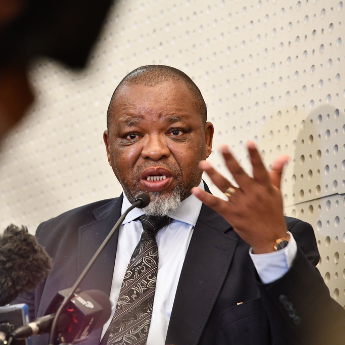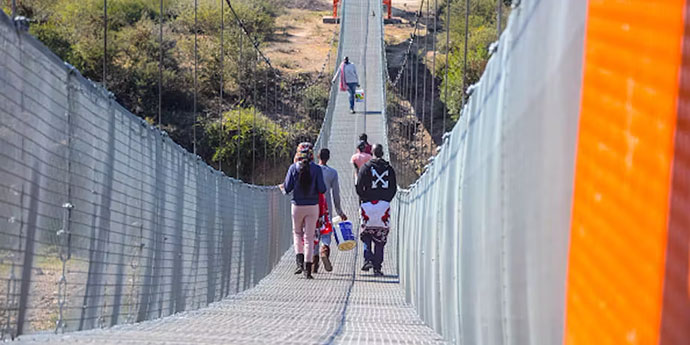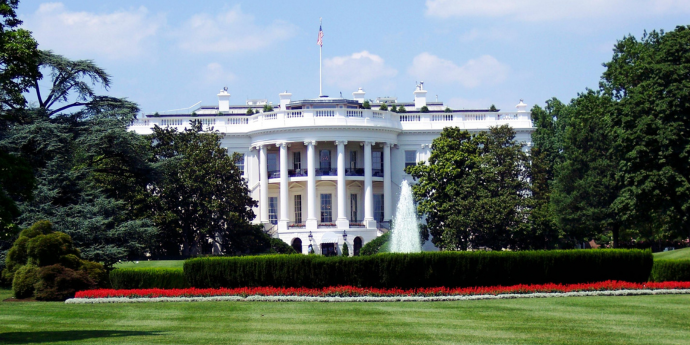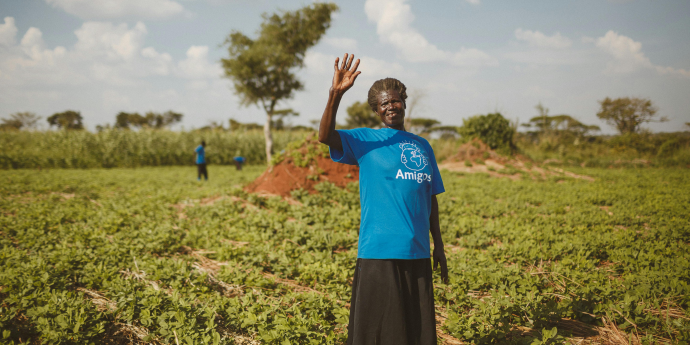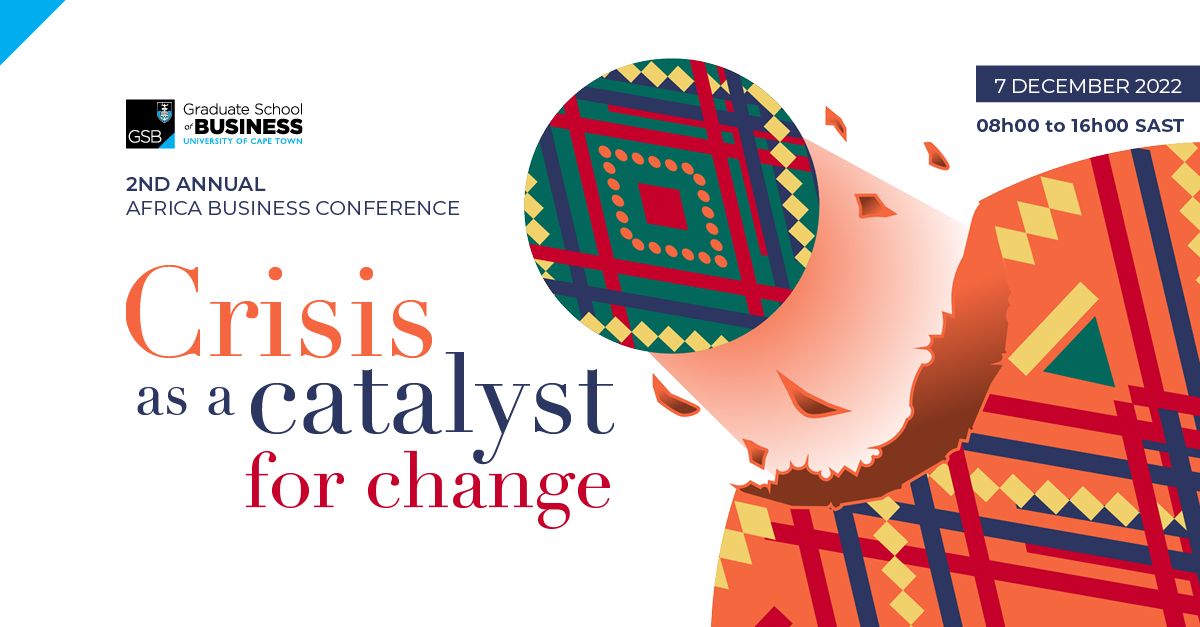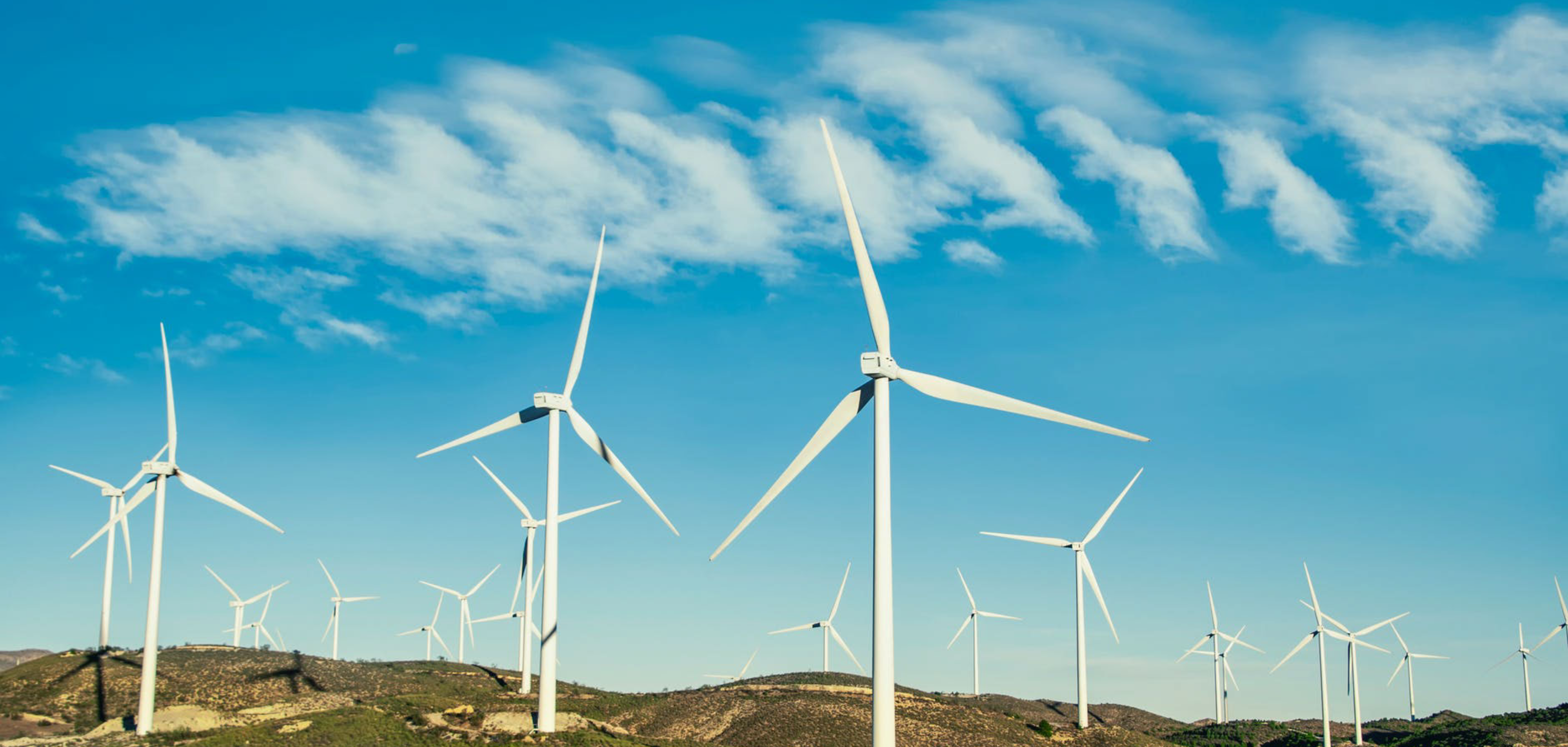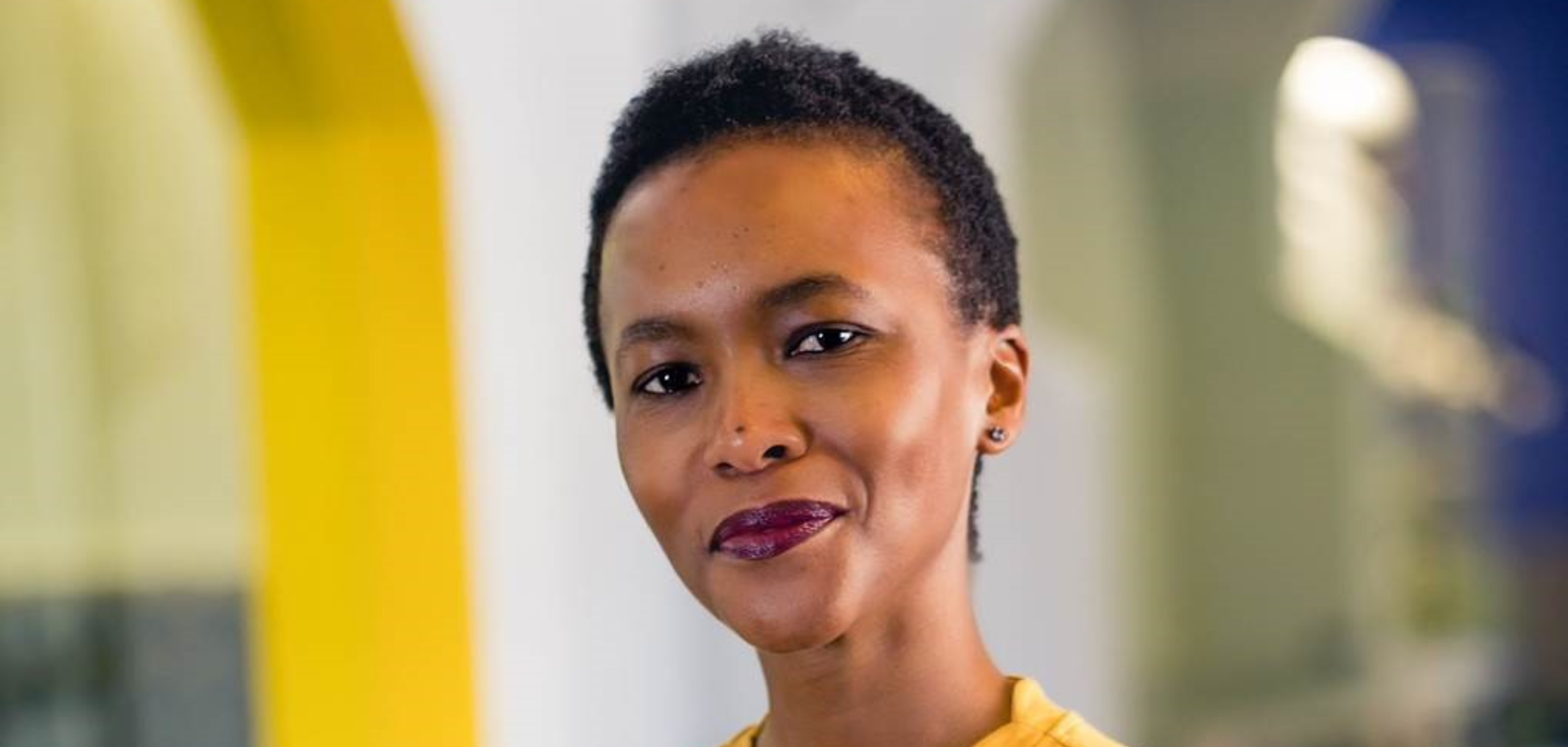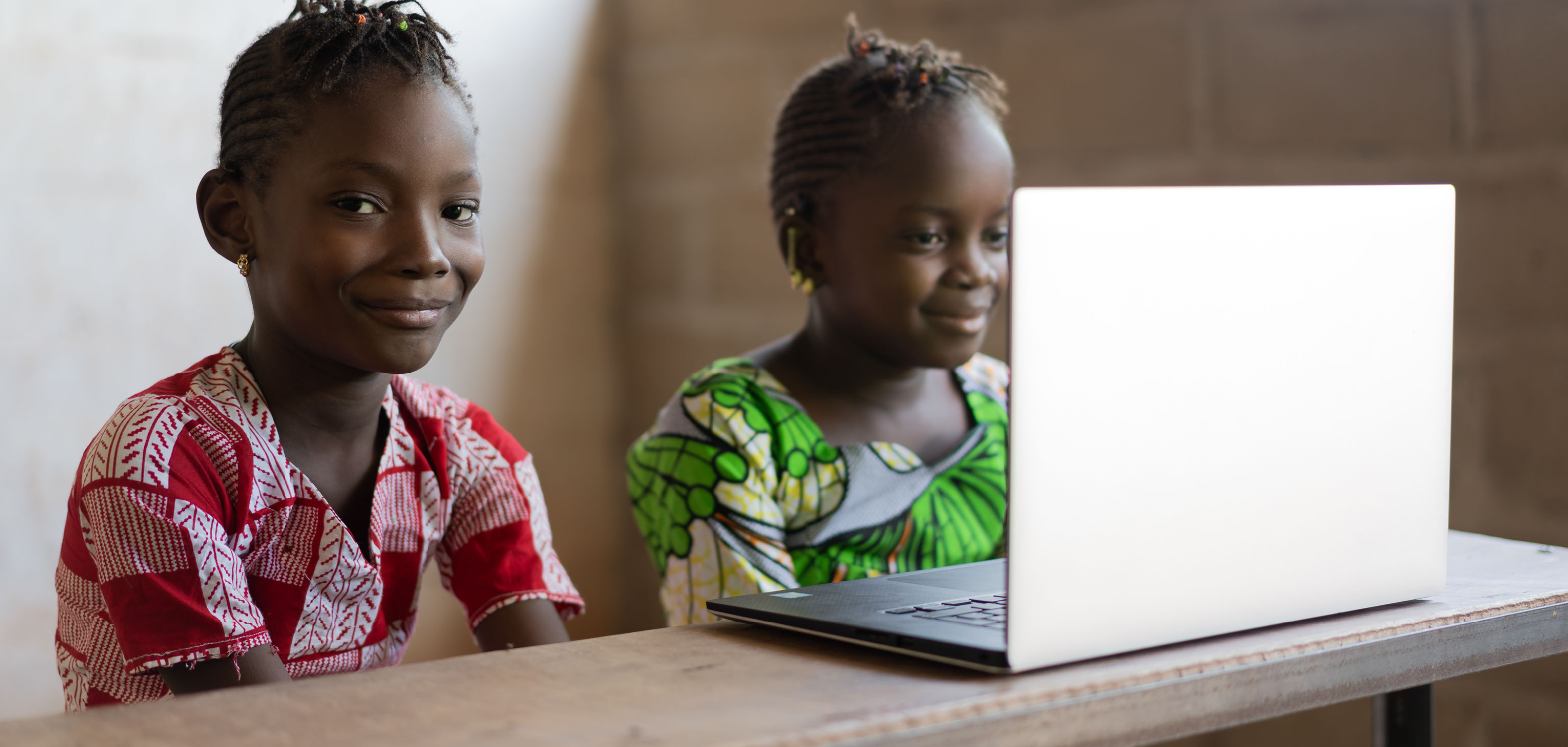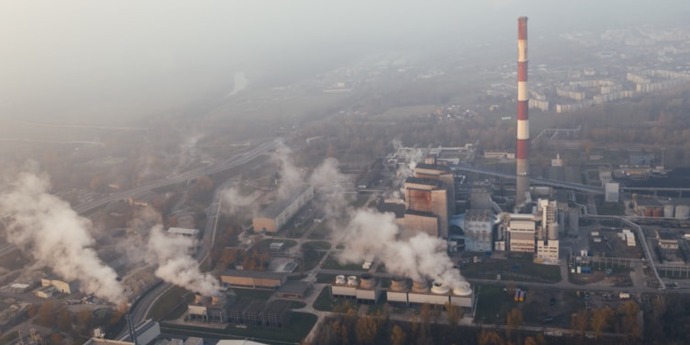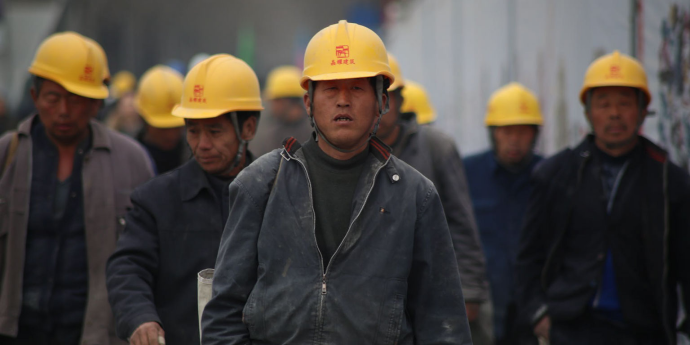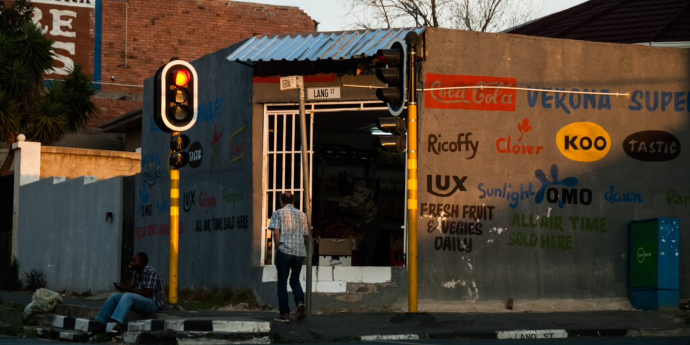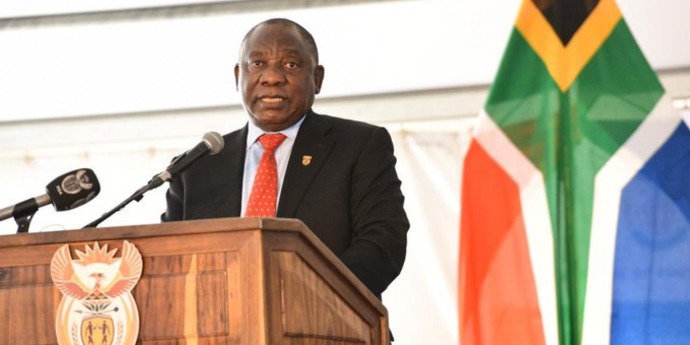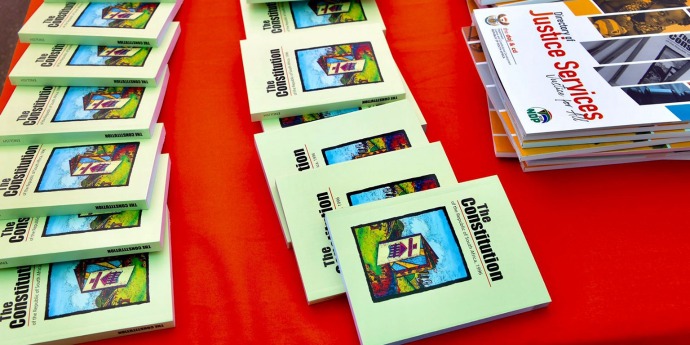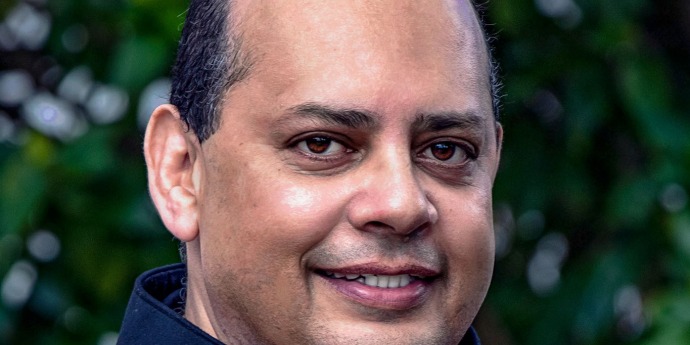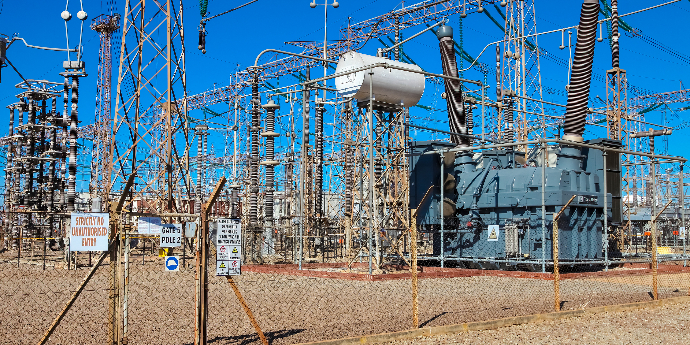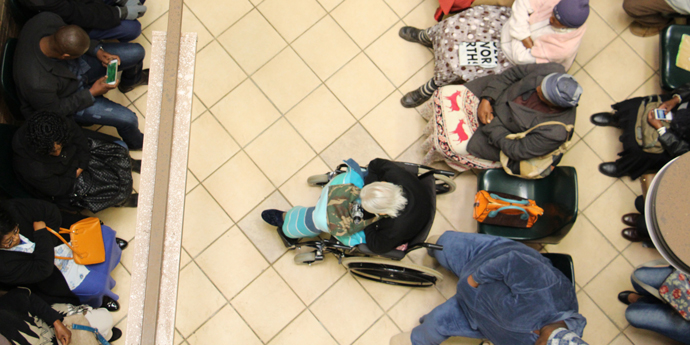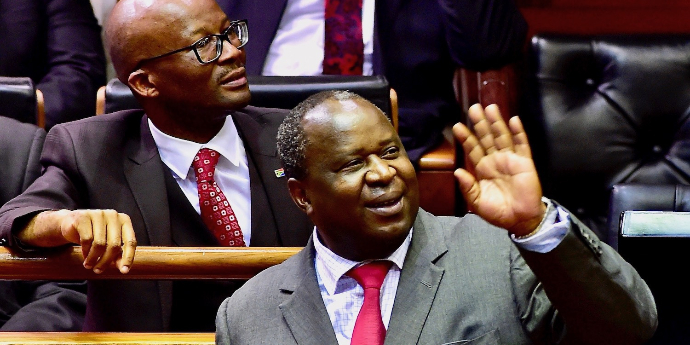The Department of Mineral Resources and Energy’s attachment to ‘clean coal’ and new nuclear as immediate options for a post-Covid-19 economic recovery would be comical if they were not financially ruinous. Their fixation on these non-competitive, non-commercial technologies is now wasting scarce public resources.
South Africa is beginning to see the consequences of an energy ministry trapped in the past, beholden to interest groups and oblivious to global innovations in energy technologies and markets. Submissions by the minister and his energy department to Parliament in the past month reveal an economically disastrous commitment to policy, procurement and investment options that have no hope of contributing to our post-Covid-19 economic recovery.
The Department of Mineral Resources and Energy (DMRE) in its strategic and economic plans is promoting the role of nuclear energy (mainly small modular reactors) and clean coal (with carbon capture and storage), but these technologies are neither price competitive nor, in the case of small nuclear, are they currently commercially available.
In a presentation to Parliament on 26 May 2020, Minister Gwede Mantashe proposed several medium-term (6-12 month) interventions in response to the economic impacts of the Covid-19 pandemic. Among his proposals to boost industrialisation were immediate production of sanitisers, face masks, test kits, antigens and antibodies [sic], ARVs, a multi-purpose reactor and “carbon capture and utilisation as feedstock to the manufacture of chemicals, fuels etc”. Note, these were proposed as DMRE contributions, mostly utilising existing budget allocations. How’s that going, we may ask?
In the same presentation, the minister proposed a number of interventions (also 6-12 months) to enhance electricity supply security, including acceleration of a nuclear build programme, conversion of Eskom’s diesel-fired turbines to gas and the building of a new oil refinery. None of these, of course, can be accomplished within a year and it’s highly unlikely that even contracts for these projects will be placed any time soon, if ever. Implementation of South Africa’s IRP electricity plan, which identifies wind, solar and storage as the next least-cost options to ensure electricity supply security, was evidently not regarded as a priority although — almost as an afterthought — it was offered as a long-term option.
Over the past weekend, DMRE launched a Request for Information (RFI) to commence preparations for a nuclear build programme. Of course, an RFI is non-binding (unlike a Request for Proposals, RFP, in a competitive tender or auction) and participants are perversely incentivised to put forward unrealistically attractive offers and prices which they’ll probably seek to alter when contracts are negotiated. In short, an RFI is not particularly helpful unless you don’t know what you’re doing and want technology and service providers to shape your procurement.
The minister has also entertained plans for expanded investment at the Nuclear Energy Corporation of South Africa (NECSA), despite the institution recording unprecedented financial losses. The previous NECSA board chairperson put forward a realistic strategic plan which focused on its profitable medical isotopes business and proposed cuts to its non-viable industrial subsidiaries. The minister rejected these and the chairperson resigned.
Referring to his interactions with the previous NECSA board, the minister was quoted on 20 January 2020: “I grew up in Cala. In that area of the world, when people relate to you as a young boy, you revolt. When people treat you like you are just a small boy, then you are going to resist that with everything you have. That is how your purported board relates to me. They think I’m just a small boy who does not know what he is doing. Now they are going to get my resistance,” he said.
The minister has now appointed a new board chairperson, the retired nuclear chief officer of Eskom, an ex-British navy nuclear submariner, someone who continues, on social media, to rubbish renewable energy alternatives.
It’s time for a reality check. No country or private company currently offers commercially proven exports of land-based, small modular nuclear reactors. South Africa tried to develop one — the pebble bed modular reactor (PBMR) — but after spending more than R20-billion (in today’s money), the programme was closed after a decade without even a pilot demonstration plant being built.
Russia continues to develop small nuclear reactors, mainly for marine purposes, such as ice-breakers and barges. China has demonstration projects under construction and testing, and there is renewed research and development activity in the US, Japan, South Korea and the UK, among other countries. But these are not yet commercially available, licensed projects for export.
Clean coal is also a mirage. Its supporters argue for high-efficiency, low emission (HELE) power stations. The Kusile coal power plant in Mpumalanga was meant to be an exemplar, but we now know how expensive that was, more than double Eskom’s average cost of generation and more than four times the cost of current least-cost generation supply options, as revealed in the latest bids in South Africa’s renewable energy IPP programme and international auctions, which are delivering electricity prices less than US 2c/kWh.
The only way coal power stations could be regarded as clean is if, in addition to minimising pollutants such as particulates, sulphur and nitrogen oxides, they scrub climate change-inducing carbon dioxide from combustion gases and store it safely in geological strata.
While carbon capture technology has been developed for power plants, less than a handful are operational — for example, Petro Nova in the US and Boundary Dam in Canada — and these are expensive. A multi-year research project has revealed that secure and safe sequestration of carbon in South Africa is problematic.
Yet the minister stubbornly promotes “clean” coal. In an interview on 24 February 2020, he stated: “Let us say [another] state-owned company, no names mentioned, comes to us and says: Listen, we want to open a coal-fired power station with carbon capture and storage (CCS), and we can do it in the next two years. And they propose to build it with their own money, operate it to recoup their money, and then transfer it to the state — the Build, Operate, Transfer approach. It is a very attractive proposition, although there has been no decision yet in this direction.”
But this is not how public procurement of infrastructure projects works in South Africa. The Constitution and the Public Finance Management Act require fair, equitable, transparent, competitive and cost-effective tendering. Non-transparent, directly negotiated deals are not permissible. Apparently the minister’s door has been wide open to lobbyists (another recent example is the agreement with Russia’s Gazprom), while his own electricity plan is neglected.
DMRE’s attachment to clean coal and new nuclear as immediate options for a post-Covid-19 economic recovery would be comical if they were not financially ruinous. It’s not only that they are dilatory in their plans to secure a least-cost, secure electricity supply to power economic activity and provide social benefits for households, but their fixation on these non-competitive, non-commercial technologies is now wasting scarce public resources in what has been described by scholars as technologies of prevarication (I would add, also of obfuscation and rent-seeking). Tragically, a generation of young, talented and skilled professionals will believe there is still a career in nuclear power or clean coal when economic analyses show the opposite.
Furthermore, new mining and energy entrepreneurs, believing the government is charting a future in coal, are likely to be short-changed. International mining majors are selling their coal assets. It is one of the few mining sectors in South Africa that is seeing significant black economic empowerment, but with what consequences? Will these new companies survive declining coal demand and revenues, and contingent environmental liabilities?
Meanwhile, the past few years have seen an upending of comparative power generation costs. I have seen more innovation in energy technologies and markets in the past seven years than in the previous 35 years of my professional career. Since 2011, solar PV prices have fallen 90% and wind energy 50%. They are now the least-cost electrical energy sources. Of course, a power system depends not only on energy, which, in the case of solar and wind, is variable, but also requires back-up capacity and ancillary services (such as frequency and voltage support, reactive power and inertia), but even with these additional costs, renewable energy now provides a supply mix that is cheaper than including new coal and nuclear investments.
And yet the minister remains ultra-sensitive and resistant to any advice on these new options. Speaking at the launch of the International Energy Agency’s Coal Report on 17 December 2019, he referred to the incident in 1865 in South Africa when Nongqawuse, a 15-year-old, claimed that the spirits of the ancestors had spoken to her and if the Xhosa people would kill all their cattle and burn their crops, a day would come when they would drive the whites into the sea and gain wealth.
“I am from a province,” he said, “in the Eastern Cape, one time they were told to kill their cattle because there is wealth coming. That new world has not arrived there, we are starving up to today. So anybody who comes to me and says destroy what you have because there is hope, you will battle, because I am informed by this experience.”
How do we explain the minister’s championing of nuclear and coal, and his aversion to even mentioning renewable energy without appending the label “lobbyist”? Why is there so little recognition of South Africa’s globally recognised, successful renewable energy auctions? Mantashe’s history as a miner of gold, copper and coal, rising to the general secretary of the National Union of Mineworkers, and his networks with emergent interests in the coal and nuclear industries, provides some insights, but one would have thought that his experience of researching a thesis for his Master’s degree on the decline of South Africa’s gold mining industry would have provided salutary lessons. Employment in gold mining today is a fraction of what it was in the 1980s. There were no effective government interventions to halt this decline.
The demise of the coal mining industry is now equally inexorable. The minister may seek to slow it, but the costs of coal as a power source, environmental harm and the availability of lower-priced, clean power technologies, mean that we have reached “peak coal”: it is downhill from here.
Britain, which pioneered the Industrial Revolution based on coal-fired steam engines and later electricity, will be coal-free in the next couple of years. Coal is declining in the US regardless of Donald Trump’s policies and slogan that he “digs coal”. And despite large coal markets in China and India, these countries are now adding more renewable energy capacity than coal power. A rapid energy transition is underway.
The minister’s behaviour may also be explained by the ideological distrust by many in the government of the private sector, which has been more embracing of innovation and is willing to invest in competitive, low-cost clean energy technologies.
Mantashe has put forward the idea of a new state-owned generation company, unencumbered by Eskom’s horrific debt. But why?
Most would agree that the state’s role should be reserved for correction of market failures, the provision of social services and the protection of the poor, rather than crowding out private capital. It’s as though an ideological fog obscures the reality of the present and where an older political generation still wishes a role for the “developmental state” in the power sector, despite the spectacular failure of Eskom, which has crippled economic growth through power cuts, charging us prices four times higher than a decade ago, and is draining the fiscus of tens, soon hundreds, of billions at a time when the state can least afford it.
The minister has had responsibility for the energy portfolio for a year now. He was appointed after a period of severe Eskom power cuts and load shedding. It would be realistic to expect that his top priority would have been rapid investment in new power. Yet the IRP was only finalised six months later and ministerial determinations, required by law before initiating new IPP procurements, have still not been gazetted. Neither has there been any meaningful reform of regulations which would ease private investment in small distributed generation.
I once told the minister that history would judge him poorly if load shedding and power cuts returned. He replied: “I’ll blame the public enterprises minister and Eskom.” It was meant as a joke but, in November 2019, that’s exactly what he did.
The recent cold front that swept South Africa has revealed the fragility of our power system: a two-gigawatt increase in demand forced extensive use again of expensive back-up diesel-fired turbines, a cold reminder that we do not have enough operational power capacity or a sufficient operating reserve margin to support an economic recovery.
While it’s difficult to fix Eskom — we have to try, given its current dominant share of electricity supply — it’s not difficult to accelerate private investment in South Africa’s power sector. Four actions are urgent.
First, the minister needs to demonstrate his commitment to implementing the government’s optimised IRP through launching planned, least-cost Independent Power Producer (IPP) procurements. It takes time to run tenders or auctions, prepare bids, award contracts, obtain the required permitting and licensing, secure financing, reach financial close, construct plants and achieve commercial operation. We are already late in guaranteeing planned capacity additions for 2022 and it’s almost certain that we’ll experience further load shedding over the next three years.
Second, the so-called emergency power procurement, which the minister announced in 2019, and which was supposed to deliver electricity within three, six or 12 months, should be repurposed and allocated to small distributed generation projects by the private sector. These are the only projects which can deliver new power within these short time frames.
Third, there is a need for regulatory reforms to ease licensing impediments for self-generation and distributed energy resources. At present, only projects below 1MW or off-grid, are exempt from a NERSA licence. There is a huge pipeline of projects in the 1-10MW range, for example rooftop solar PV on commercial and industrial buildings, which face onerous and inefficient licensing requirements and procedures that were designed for power generation plants hundreds of megawatts in size.
In addition, there are numerous large industries and mines that wish to build their own generators, but also to remain grid-tied: they too face frustrating regulatory barriers. The minister, quoting NERSA, says it’s not a problem, that the backlog is not large and the regulator will process licence applications within 120 days. The reality is that NERSA has not issued a new generation licence since 2016 and industry players remain frustrated. It clearly makes sense for the minister to cut through this red tape by gazetting another amendment to Schedule 2 of the Electricity Regulatory Act with these expanded licence exemptions.
Finally, the minister could make a policy pronouncement that direct power contracts between IPPs and large customers will be encouraged and that barriers to achieving timely and cost-effective connection, and wheeling agreements will be overcome.
None of these steps require tax rands or government investments; that’s their attraction in a fiscally constrained post-Covid-19 environment. They are pragmatic, sensible, achievable and they can power economic development and job creation. South Africa needs an energy ministry and department that is focused on the path of economic recovery, not the fantasy of these uneconomic, unrealistic vanity coal and nuclear projects, which are prone to cost and time overruns, and rent-seeking.
The minister has extraordinary powers. How will he use them? How will he be remembered?
Anton Eberhard holds the titles professor emeritus and senior scholar at the UCT Graduate School of Business.
This article was first published in Daily Maverick.

